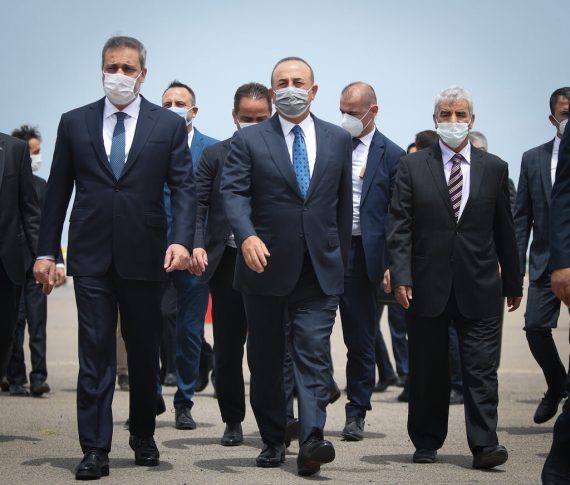To understand the changing structure of global intelligence, we must keep the following concepts and terminology in mind: technology-centered development, the increasing cyber espionage capacity of intelligence services, the developing relations between intelligence services and private intelligence companies, new-generation threats and risks that emerge with the rise of social media, open-source intelligence (OSINT) collection methods, and the concept of intelligence diplomacy.
Today, technology affects every walk of life. The speed of life has increased by the spread of the internet and social media. Daily lives, public spaces, and commercial activities are digitized, while the COVID19 pandemic gave a great push to this process. However, our dependence on technology and digitization also increase the risk of cyber espionage.
Governments and global companies carry out a significant part of their activities through internet-based technologies, and this brings important challenges with it regarding the privacy of information. Confidential information belonging to governments, global companies, and individuals is disclosed via manipulative tools created for cyber espionage operations which leak information to the public through various means. This forces intelligence services to increase their capacity to conduct sophisticated cyber espionage operations and to increase their cyber defense capabilities.
The increasing relationship between private intelligence companies and intelligence services brought about a significant change to the classical structure of intelligence. Private intelligence companies have been playing an important role, especially within the United States intelligence structure for decades. On the other hand, Russian intelligence services have been active in this field in recent years through the private intelligence company Wagner.
Commercial capacities of private intelligence companies increased with “the war on terror” doctrine as formulated by the United States after 9/11.
Commercial capacities of private intelligence companies increased with “the war on terror” doctrine as formulated by the United States after 9/11. Private intelligence companies refashioned their activities in accordance with the changing threat perceptions, asymmetrical threats, and the global demand for risk analyses needed for international investments. Private U.S. intelligence companies operate with the support and guidance of the state secret services. The U.S. private intelligence market with increasing trade volumes and profitability paved the way for global companies to invest further in the field.
It has been claimed that a private intelligence and security company such as Blackwater had close commercial ties with the CIA including carrying out assassinations, interrogation activities, kidnappings, and other technical and physical pursuits in Pakistan, Afghanistan, and Iraq to combat radical terrorist elements. This commercial relationship could also breach fundamental human rights and freedoms.
Another dimension of the cooperation between the U.S. state intelligence and private companies is the role played by think tanks during decision-making processes in foreign policy. It’s noteworthy that U.S. think thanks employ local researchers. No doubt, local experts know the region better, and have a good command of local languages and cultures, and therefore, their policy reports are more accurate and influential.
This process has made U.S. think tanks more professional. It is highly possible that researchers working for think tanks are in contact with the U.S. intelligence services and exchange information within the scope of their academic expertise.
OSINT (open-source intelligence) instruments affect the ways in which intelligence is gathered. Today, most of the intelligence that a state needs in its decision-making processes is gathered via OSINT tools. Artificial intelligence (AI) models, applications, and algorithms further facilitate this process. All intelligence services, especially American, Chinese, and Russian ones, benefit from AI models, applications, and algorithms, in the collection and analysis of intelligence, especially in providing imagery intelligence (IMINT). Intelligence services invest in this and allocate large budgets to develop OSINT capabilities.
Users can hide their real identities in social media and this helps criminal and terrorist organizations to access and spread information flexibly and cheaply. In parallel with the increase in the use of smartphones in daily life after 2010, criminal and terrorist organizations make effective use of social media.
Al-Qaeda and other terrorist organizations are ably using social media in action planning, propaganda, and internal training.
Al-Qaeda and other terrorist organizations are ably using social media in action planning, propaganda, and internal training. The smartphone application ByLock that was used by the Fetullah Terrorist Organization (FETÖ) allowed the encrypted identification of anonymous users and is another good example of how a terrorist organization can use the internet infrastructure to plan terrorist activities.
The PKK propaganda to defame the Turkish Armed Forces (TAF) on social media during Turkey’s Peace Spring and Olive Branch Operations are two other good examples. For example, during these military operations, PKK militants and sympathizers made great efforts to serve the world public opinion fake news on social media that the TAF killed, tortured, and forced innocent civilians to migrate within Syria.
Recommended
The concept of intelligence diplomacy is frequently discussed in recent years. In this context, the role of certain countries’ intelligence service directors within the scope of foreign policy decision-making can be analyzed. For example, the negotiations by former director of Mossad Yossi Cohen, in 2020, within the scope of the normalization of relations between the United Arab Emirates (UAE) and Israel can be given as an example of intelligence diplomacy. At the end of Cohen’s covert and secret contacts throughout 2020, the UAE officially declared its recognition of Israel on August 13, 2020.
The meetings held in Russia in November 2021 by CIA Director William Burns, who has served successfully as a diplomat for many years, can be evaluated within the scope of intelligence diplomacy. During his visit, it was leaked to the public that Burns warned Russia within the scope of the Ukraine Crisis and made secret negotiations with the Russian side regarding this issue.
It is known that Hakan Fidan, director of Turkish intelligence (Millî İstihbarat Teşkilatı, MİT), has played a very active role in the decision-making processes of Turkish foreign policy. For example, in the past years, Fidan held secret meetings about the normalization of Turkey’s bilateral relations with Egypt and Israel in the two countries respectively. Nowadays, it is speculated in Ankara political circles that all three countries are ready to take steps to normalize relations.
In today’s world, intelligence service directors take an active role in the processes of foreign policy formulation. This new role has led intelligence services to transform themselves into structures that play a more active role in foreign policy decision-making processes, unlike the classical intelligence service activities whose scopes have long been limited to specified duties.





